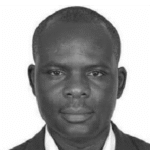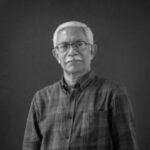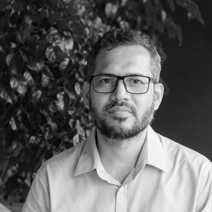Our multidisciplinary teams comprise of global leaders, social research scientists, clinical and mental health experts, health economists, health systems and policy experts, data scientists, demographers and monitoring, evaluation and learning professionals. These professionals provide deep insights that guide the research, informed by the socio-economic contextual realities of Kenya and Bangladesh.

Dr. Lilian Otiso, LVCT Health, Kenya
Dr. Lilian Otiso is the Executive Director at LVCT Health, a large Kenyan NGO that carries out research and implements HIV, sexual and reproductive health, maternal and child health, sexual violence prevention, mental health, health systems strengthening and community health programs reaching over 1 million individuals across Kenya annually. She has managed grants from various donors including USAID, CDC, UK government, UN agencies and various foundations. She is a Medical Doctor with an MBA in Health Care Management with over 15 years’ program management and research experience in government and NGO sectors. Dr. Otiso is a fellow of the inaugural Obama Foundation Leaders: Africa 2018 program and was awarded the Trocaire Oscar Romero Award in 2021 for protecting vulnerable communities during COVID-19. She is a member of various national and international technical working groups, has contributed to Kenyan and global WHO guidelines and provided technical support for policy development. She has published several peer-reviewed articles and documents. Currently, she is pursuing a PhD in Global Health at the Liverpool School of Tropical Medicine.

Dr. Stephen Mulupi, LVCT Health, Kenya
Dr. Stephen Mulupi is the Head of Research at LVCT Health. Mulupi has over 15 years research experience in health systems and financing research, policy and ethics. He is interested in generating timely evidence for strengthening health systems towards universal health coverage, with a particular focus on linkage between community health systems, and formal healthcare facilities. Dr. Mulupi holds a PhD in Global Health (Liverpool School of Tropical Medicine) with a strong focus on strengthening linkage between community and formal health systems.
Dr. Mulupi is a co-lead of the SHINE consortium, and will investigate the health economics components of the study, particularly in measuring financial burdens of community health workers in conducting their duties within Kenyan settings.

Professor Sabina Faiz Rashid, BRAC James P Grant School of Public Health, Bangladesh
Professor Sabina Faiz Rashid, Ph.D. is the Mushtaque Chowdhury Chair in Health and Poverty at the BRAC James P Grant School of Public Health, BRAC University, where she served as Dean from 2013 to 2023. With over 25 years of experience, she is a leading expert in ethnographic and qualitative research, focusing on gender, poverty, urban slums, adolescents, refugees, and climate-affected communities in Bangladesh. She holds a Ph.D. in Medical Anthropology from the Australian National University. She founded the Centre of Excellence for Gender, Sexual and Reproductive Health and Rights (2008) and co-founded the Centre for Urban Equity and Health (2013). She leads several international research initiatives, including: ARISE (Bangladesh PI), ACCESS4-ALL (Erasmus+ grant on climate, health, and gender), Climate Adaptation and Migration in South Asia – Q&A featured by Harvard, CREA’s OVOF project, LSTM-Fleming Grant on gender and AMR (South Asia PI). Her work is featured in the WHO Bulletin, Springer’s Women and Global Health Leadership, and a Lancet profile (2025). She was honored as one of the Heroines of Health at the 2018 World Health Assembly. She is also an Honorary Professor at LSTM, a Senior Fellow at BIDS, and author of Children of Crows (Routledge, 2024) and the upcoming Handbook on Sex, Gender and Health in South Asia (Springer, 2025). She has approximately 100 + publications (i.e., peer-reviewed articles, international book chapters, books, and monographs (3830 + citations; h-index:31).

Professor Syed Masud Ahmed, BRAC James P Grant School of Public Health, Bangladesh
Professor Syed Masud Ahmed is a public health scientist and health systems researcher with over 23+ years of experience in research, evaluation, and impact assessment. His expertise spans clinical, public health, and social science research, with extensive firsthand engagement with public health issues in Bangladesh and other low- and middle-income countries. He holds an MBBS from Dhaka Medical College and a PhD in Public Health from Karolinska Institutet, Sweden.
Prof Ahmed currently serves as Director at the Centre of Excellence for Health Systems and Universal Health Coverage, and Adviser, Health Systems Management module of the MPH Programme of the School. Beside research, he is also involved in evidence-based advocacy, training, and mentoring next generation of public health practitioners and researchers. He has published extensively in international peer-reviewed journals and authored book chapters, research monographs, and working papers.
His work has influenced national and international health policy, including through his role in the Wellcome Trust Joint Health Systems Research Committee (2013–2016) and the Programme Committee for Global Health Policy and Health Systems Research of NWO/WOTRO (2009–2013). Recognised among the world’s top 2% scientists in the Stanford World Ranking (2020), his research continues to shape evidence-informed strategies for strengthening health systems and promoting Universal Health Coverage in the Global South.

Professor Tanvir Hasan, BRAC James P Grant School of Public Health, Bangladesh
Professor Tanvir Hasan works at the BRAC James P. Grant School of Public Health (JPGSPH), BRAC University, and also serves as the Co-Director of the Centre of Excellence for Urban Equity and Health (CUEH). With over 12 years of teaching and research experience, he teaches Biostatistics and Population Health Informatics in the Master of Public Health (MPH) Programme at BRAC JPGSPH. In addition to academic responsibilities, he currently leads several research and capacity development projects as Principal Investigator and/or Country Lead. His research interests include maternal and child health, sexual and reproductive health and rights, urban environment and health, adolescent health, mental health, stigma and discrimination against people living with HIV/AIDS, and the health and well-being of vulnerable populations, including individuals with disabilities. He has expertise in advanced statistical analysis, mixed methods research, evaluation research, longitudinal studies, and spatial epidemiological research. He has received research grants as Principal Investigator or Co-Principal Investigator from several renowned organizations, including the World Bank, World Health Organization (WHO), International Development Research Centre (IDRC) Canada, Open Society Foundations, and the Dutch Government. Dr. Tanvir Hasan holds a PhD from the University of Queensland, Australia, and a Master of Science in Applied Statistics from the University of Dhaka.

Professor Sally Theobald, Liverpool School of Tropical Medicine, UK
Professor Sally Theobald is a social scientist with a disciplinary background in geography and development studies and a PhD in Gender, Health and Development. She has been at the Liverpool School of Tropical Medicine since 1999; and became chair of Social Science and International Health in 2016. Sally has over 25 years’ experience of collaborative research focusing on strengthening health systems and equity in different contexts (including in fragility and in informal urban settlements) and on different health challenges (including HIV, TB, SRHR, Neglected Tropical Diseases and human resources for health). She has special research interests and a track record of research on the gendered experiences and challenges faced by Community Health Workers in different contexts. Sally is also currently working at the UKRI/FCDO Senior Research Fellow in Gender for 60% of her time. This role involves strategic advice and guidance on gender, equity and inclusion across a range of sectors including health, agriculture, education, technology and within different contexts such as humanitarian and conflict contexts.

Dr. Laura Dean, Liverpool School of Tropical Medicine, UK
Dr. Laura Dean is a social scientist with ten years’ experience of research, capacity strengthening, and partnerships for community-led development and health systems strengthening in Africa and Asia. Laura’s research uses qualitative and participatory research methods and focuses in the areas of health systems, intersectionality, gender, equity, chronic disease and disability. Most of her work has been on Zambia, India, Malawi, Sudan, Nigeria, Liberia, and the UK (Liverpool). Laura has conducted work in informal settlements in Gujarat, India, in collaboration with women living with disability and local organisations, to co-create strategies that may support women living with disability in attaining their sexual and reproductive rights. In Zambia, Laura utilised participatory methodologies to co-develop home-based care packages that could be delivered by community health workers to communities living in peri-urban environments and informal dwellings. Laura’s current work focuses on the use of intersectional approaches to explore chronic disease experience including impacts on mental ill-health and health systems responses in Liberia; as well as understanding how routine health interventions can adapt to ensure equity in programme delivery in urban and emerging contexts across Liberia and Nigeria. Laura has been involved in the leadership, design, development and delivery of social science themes within several large multi-partner, multi-disciplinary research consortiums. Laura is also a recent graduate of the Emerging Voices for Global Health programme and is committed to raising the profile of young research scientists, predominantly from the global south, within global health and health systems research.

Professor Blessing Uchena Mberu, APHRC, Kenya
Professor Blessing Uchenna Mberu is trained in Sociology with specialisation in population and demographic studies. He was a trainee at the Population Studies and Training Center (PSTC) and earned an MA and PhD degrees in Sociology from the Brown University in 2004 and 2008 respectively. Prior to Brown, he trained in Sociology and obtained a Bachelor of Science degree in Sociology in 1987 from then Imo State University Okigwe, now Abia State University, Uturu, Nigeria and M.Sc. degree in Sociology from the University of Ibadan, Ibadan Nigeria. Dr. Mberu joined the African Population and Health Research Center (APHRC) in 2008 as a Post-Doctoral Fellow and is currently a Senior Research Scientist and Head of Population Dynamics & Urbanization Program at APHRC. His research covers migration, urbanization, urban health, adolescent reproductive behavior and poverty in Sub-Saharan Africa (SSA). Prof. Mberu taught Sociology between 1988 and 2002, rising from a Graduate Assistant to a Senior Lecturer in the Department of Sociology, Abia State University Uturu, Nigeria. In the course of his career, Prof. Mberu has authored and co-authored several peer-reviewed scholarly original papers in leading social science and public health journals, book chapters, two university referred textbooks in Sociology, and technical reports across his areas of research interests and across the different stages of the lifecourse.
